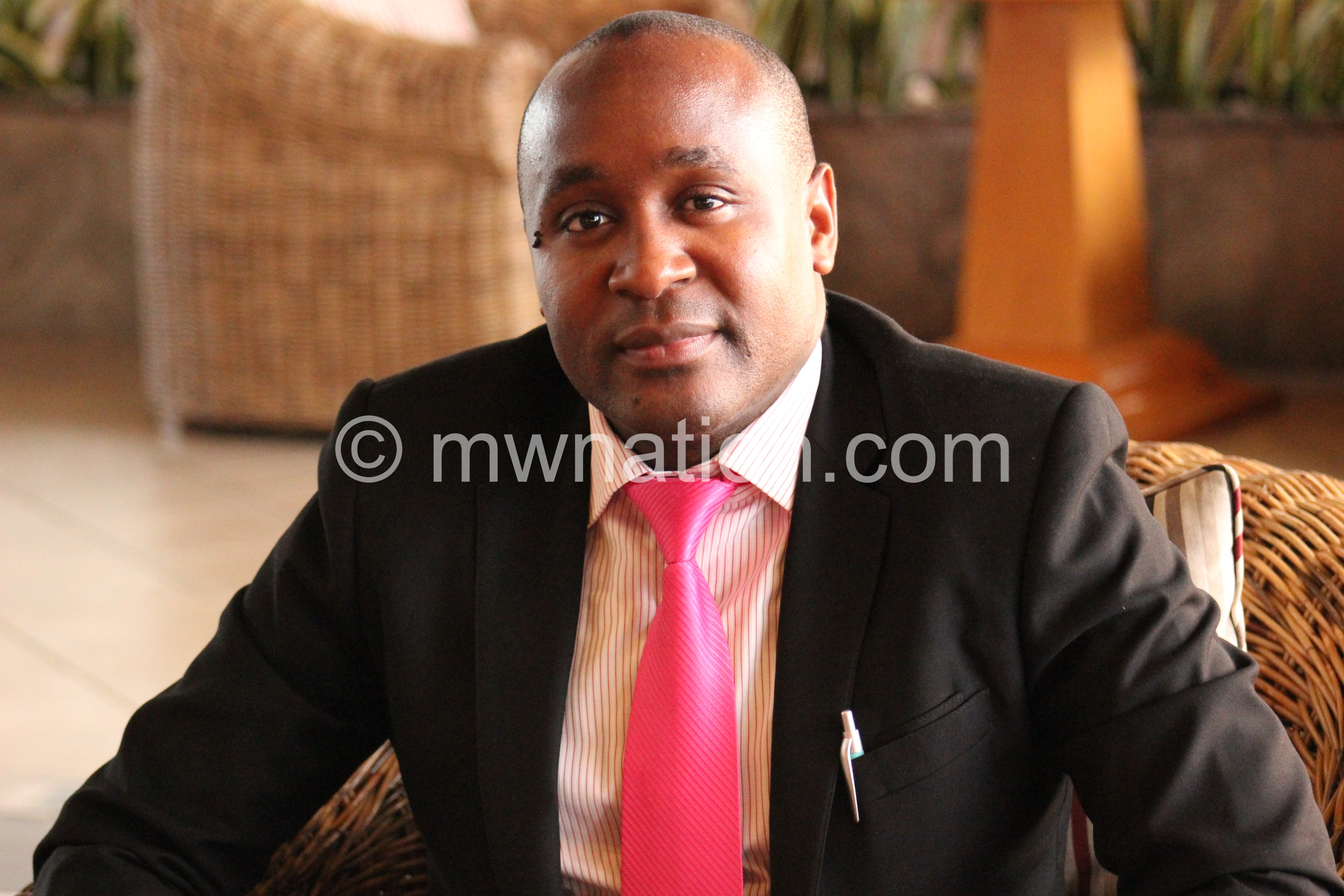‘Expect resistance to planning commission’
President Peter Mutharika recently appointed commissioners for the newly established National Planning Commission (NPC) following the NPC Act becoming a law in January 2017. Our reporter WATIPASO MZUNGU caught up with chief executive officer for the African Institute for Corporate Citizenship (AICC) Felix Lombe whose organisation promotes development, adoption and implementation of the highest standards of corporate citizenship in Africa to find out how special the commission is and what should Malawians expect from it. Excerpts:

commission will be another white elephant
Finally, we have the National Planning Commission and first commissioners in place. What is your reaction?
Well, it is a good development for the country. At long last, we have what all of us have been waiting for. This is the right move that government has taken. If you look at what this particular commission is going to be doing, it’s something that all stakeholders should receive with excitement.
Why should Malawians be excited, when there there is almost nothing on the ground in terms of impact? What do you think is special with this commission?
Malawians need to be excited on two fronts. The first perspective is the speed at which government has put in place a team of commissioners. It is rare for government to pass the law today and then three to four months down the line you have a body that is provided for in the Act. I would say this is unusual. However, it is one thing to have commissioners in place and another thing altogether to give them the necessary political as well as the administrative space to do what they are mandated to do.
What are you mean?
You may wish to know that part of the work the commissioners are going to be doing is already being done or has already been done by the Ministry of Finance, Economic Planning and Development. This means the ministry will have to give away some of its responsibilities to the new commission.
In the public sector, that does not happen that easily. There will always be struggles [resistance]. There has to be a negotiation process whereby responsible government organs hand over the responsibilities to a newly created organ, in this case, the National Planning Commission. I do not expect that to be smooth as one may wish to imagine.
Does this mean the NPC could be another white elephant?
Not necessarily! This body has a team of commissioners that is well experienced, they have made tremendous contributions in their respective fields. Some commissioners have a strong background in agriculture. And I think President Peter Mutharika had that in mind when making those appointments. He must have really searched through people that have good experience in key sectors. I also know that some commissioners have strong backgrounds in economics, engineering and tourism, among others. I think it’s a good blend. We would not ask anything more than that.
Is there any significance as regards to the timing of the establishment of the commission?
The timing of the establishment of the commission and the appointment of its commissioners is very strategic to this country for two or three reasons. One, we are now in the process of coming up with our own national development strategy. So, I should think that the commissioners will be responsible for seeing to it that national development strategy, which is short to medium-term, is well aligned to the longer-term development agenda of our country.
Secondly, the coming in of the commission will help Malawi fast-track and even help in the domestication of the Sustainable Development Goals (SDGs) and at the same time actual implementation of the same. Therefore, the commission will ensure there is synchronisation of all our development aspirations.
What kind of support does the commission need for it to deliver to the expectation of Malawians?
Well, being a government entity, obviously the first thing that is needed is resources. Resources will be paramount. I know of what happens in politics. When government is under pressure, say maybe to pass a certain law; it will make sure that the body created by that law is denied of adequate resources so that its operations are crippled. But I would expect this commission to be well resourced if it is to deliver as mandated by the Act. Of course, the resource envelope in this country is a bit small. But this is a priority body that has to be given priority as well when it comes to financing.
Additionally, government needs to provide an operational and administrative space to deliver. If it is not going to be given the necessary space, we should expect another white elephant in the room. n





